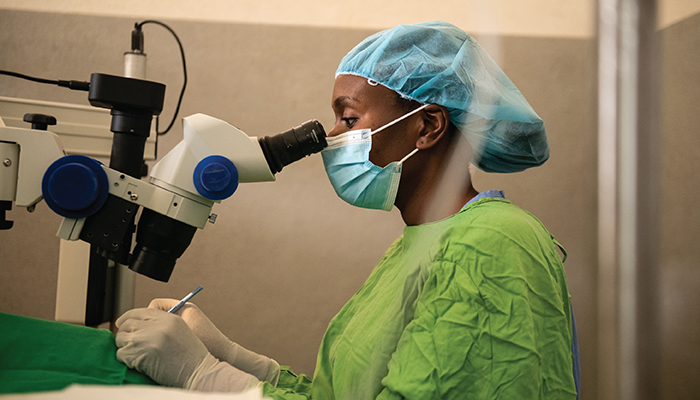
Caption: Moira Chinthambi working in an operating theatre at Kabudula Health Centre in Lilongwe, Central Malawi. Copyright: Sightsavers/Thoko Chikondi
Can you talk about the eye health project you were recently involved in?
The eye health project was in partnership with Sightsavers and funded by the UK Government and the British public through the UK Aid Match program. It was a program based around inclusive eye health, and there were a number of services being offered across the rural population. The project was conducted in the South West Health Zone of Malawi, and also in the Lilongwe district. Lilongwe is the capital city of Malawi, but we focused mainly on the rural community.
We did a lot of outreach – providing eye health screenings within the community and reaching over 120,000 people. If we identified any patients with eye diseases, we would give them treatment; for example, if they had cataracts, we would perform these cataract surgeries at the local community eye hospitals. We would send our ambulances out into hard-to-reach areas and pick up those patients who needed to be referred and bring them to the nearest community hospital, where we would be waiting to do the cataract surgeries.
When I joined ophthalmology, many of my family members were disappointed; they wanted me to do the “bigger” things – obstetrics, gynecology, and surgery. Everyone kept saying, “It's just the eye. It's just a tiny little organ.” I think many people underestimate the value of good eye care. After all, fixing this “tiny little organ” can significantly impact someone’s life.
How did the project promote inclusivity for disabled people and women?
We worked hand in hand with the Federation of Disability Organisations in Malawi (FEDOMA) – with a focus on the training of healthcare staff. Then, during the cataract surgery camps, we were able to prioritize people living with disability. It wasn't solely about training and awareness; it was also about involving those minority groups and making sure they also got access to eye health care – if they needed surgery, they got surgery; if they needed eye drops, they got eye drops.
Why do minority groups have less access to eye care in Malawi?
In terms of women, I think the primary reason is our cultural beliefs or the cultural norms of our society; men tend to be prioritized more than women in almost every aspect of life. If a man and a woman are unwell, it’s likely that the man will be made the priority in terms of receiving treatment. This cultural norm also relates to decision-making – most of the families are headed by men, it is the man who makes the decision. I think this is a significant barrier [for women] accessing eye care services.
The infrastructure of our country also presents a major challenge. There can be vast distances between hard-to-reach areas and the nearest health facility. So, although we have a good referral system, most people have to travel over 20 kilometers to their nearest hospital. Unless it is provided through initiatives like the inclusive eye health programme, transport to hospitals is not always available in rural communities.
People living with a disability may need someone to escort them to the hospital; If no one is available, they simply cannot go. Most of these people with disabilities also have financial constraints or may be unable to travel. If these individuals do manage to get to the hospital, many of our health facilities are still not disability friendly.
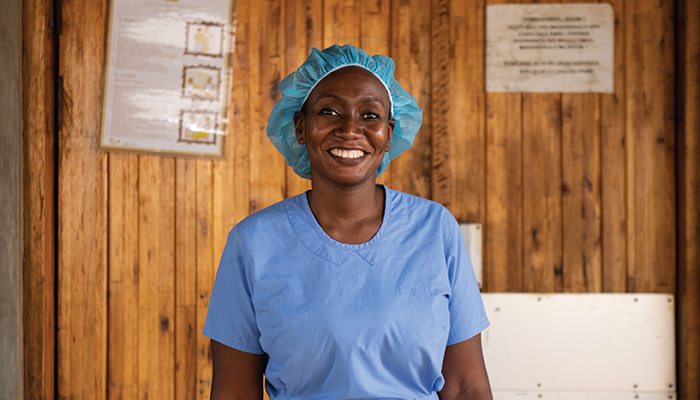
Caption: Moira Chinthambi at Kabudula Health Centre, Lilongwe, Central Malawi. Copyright: Sightsavers/Thoko Chikondi
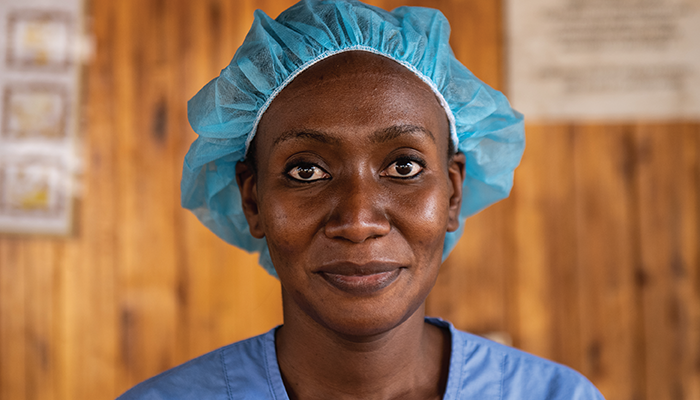
Caption: Moira Chinthambi at Kabudula Health Centre, Lilongwe, Central Malawi. Copyright: Sightsavers/Thoko Chikondi
What are the main eye care issues you encounter in your country?
Firstly, it’s geography – some rural areas are remote and difficult to reach; in Malawi, the majority of the population live in rural areas.
Secondly, there is an issue of awareness; most people do not know about all the services that are being offered at the hospital. For example, if someone is born with a visual impairment, people just assume that is “just the way God designed it” and so they’re not brought to the hospital.
How do you think that awareness might be improved?
We could start with the simple things; radio is accessible to the majority of the population, so giving general health talks could reach a lot of people. Also, involving our primary eye care workers (we call them “Health Surveillance Assistants” or HSAs) in health talks would increase awareness. Finally, ensuring these talks are delivered where women gather – maternity clinics, under-five pediatric clinics, and so on – would help.
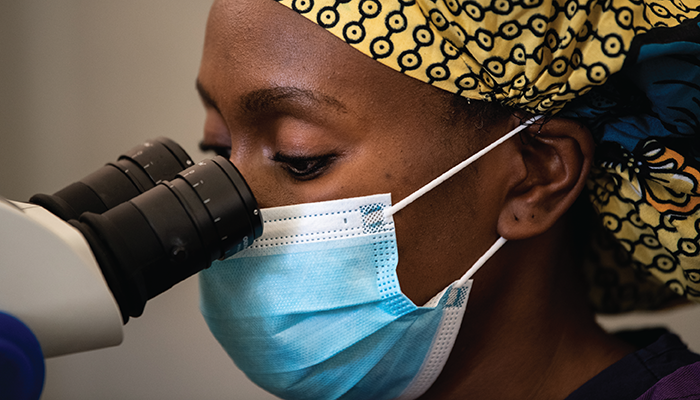
Caption: Moira Chinthambi working at Kabudula Health Centre, Lilongwe, Central Malawi. Copyright: Sightsavers/Thoko Chikondi
What challenges do you face when working in these rural communities?
The main issue is the availability of specialized eye equipment. At the moment, a health center might have a torch and an ophthalmoscope, but that's all. Ideally, we would have a slit lamp and some other more specialized equipment. Also, if we could get more skilled workers, such as optometrists and ophthalmic clinical officers, set up in these rural community health centers, it would be hugely beneficial.
Another less-discussed challenge working in the rural community is that there are no opportunities – for example, continuous professional development and conferences – for eye care professionals.
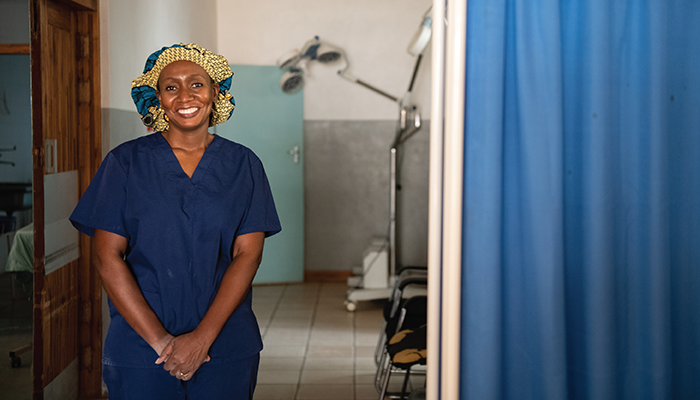
Caption: Moira Chinthambi at Kabudula Health Centre, Lilongwe, Central Malawi. Copyright: Sightsavers/Thoko Chikondi
